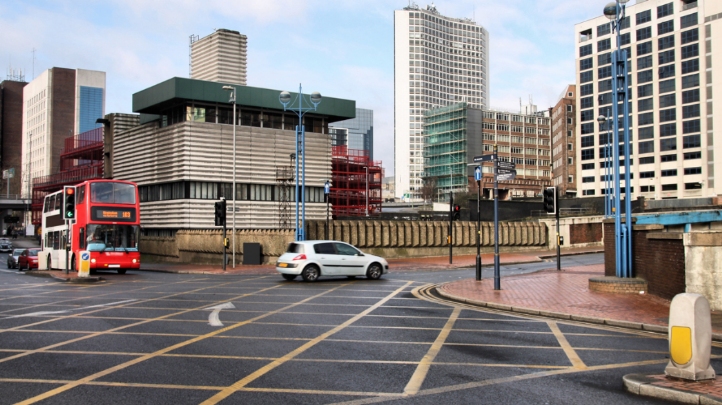Birmingham is missing out on £3.6bn in productivity as more than 1.6 million residents do not have quality public transport links to the centre of the city, research by Centre for Cities has found. Data published yesterday (Tuesday 22nd March) shows just 34 per cent of Birmingham’s population can reach the city centre via public transport in less than 30 minutes.
This is because the majority of residents live in low-rise, car-dependent suburbs away from key rail or bus routes. The poor connectivity consequentially limits people’s access to education and job opportunities and means the city is far less productive than its European counterparts.
Research shows Birmingham’s transport network significantly underperforms when compared with Munich. Although Birmingham has the larger transport network and population (2.5 million to Munich's 1.5 million), Munich is still able to swiftly bring nearly 200,000 more residents to its centre than Birmingham.
A significant factor behind the disparity is a substantial difference in the population densities of both cities, with more people in Munich living in well-connected mid-rise suburbs closer to the city centre. At current densities, Birmingham's public transport network would need to double in size to achieve the same outcomes as Munich, a task that would be both costly and hard to achieve.
To improve public transport in the UK’s big cities and help them compete with their European counterparts, the Government should:
· Continue to invest in new transport infrastructure in city regions where it is needed.
· Give all combined authorities powers over local bus franchises to set and control bus fares, frequencies and timetables, and specify bus networks. Much like in London and, more recently, Greater Manchester.
· Reform the planning system to make it easier to build midrise new neighbourhoods in well-connected suburbs.
· Encourage councils to release small areas of greenbelt land around stations for development and implement Local Development Orders – a little used tool to get more homes built.
Centre for Cities Chief Executive Andrew Carter said: “Last month the Government outlined its ambition to create a ‘global city’ in every part of the UK by 2030, yet our research shows that transport networks in major cities, such as Birmingham, are lagging far behind their European counterparts.
“Birmingham’s reliance on car-dependent low-rise suburbs is keeping local transport revenues down and costing billions of pounds in lost productivity - money that could otherwise be spent on building a successful London-style transport system in the West Midlands.
“If we want these cities to reach their global potential, we need to see more passengers living close to quality public transport links. Attempts to fix this problem by investing in transport infrastructure will fail unless substantial planning reforms are made to build new midrise neighbourhoods closer to the city centre.”










